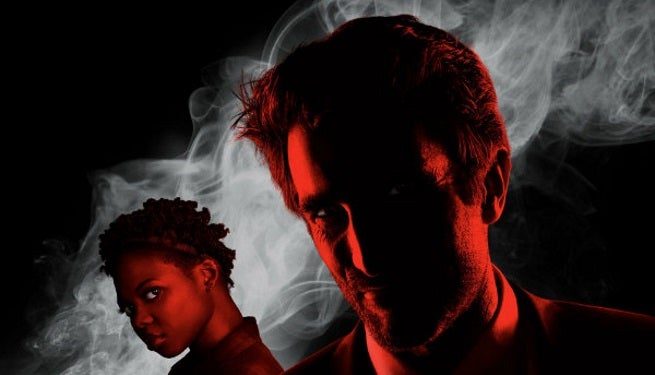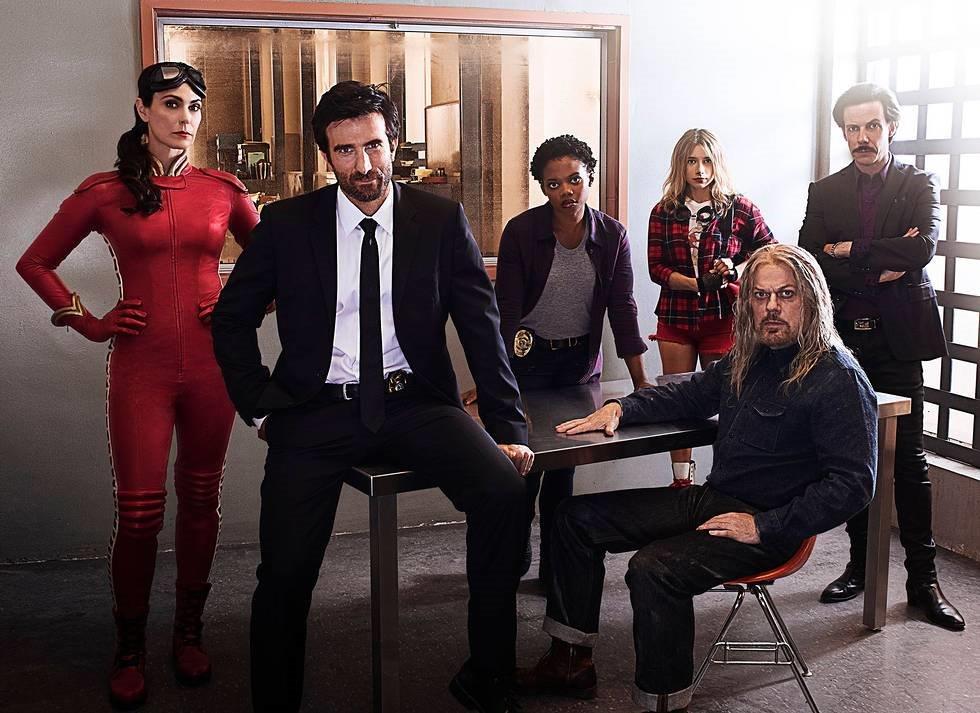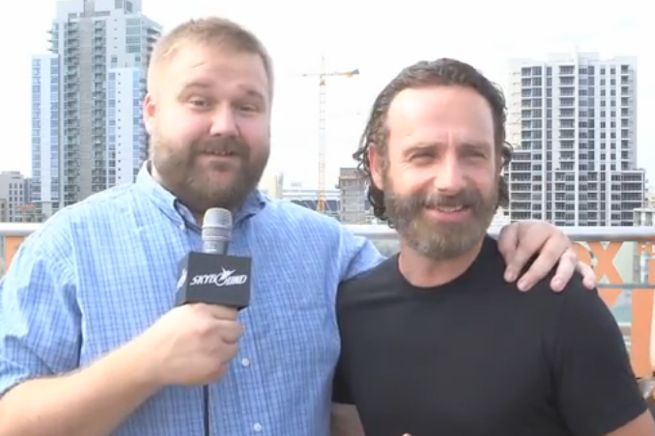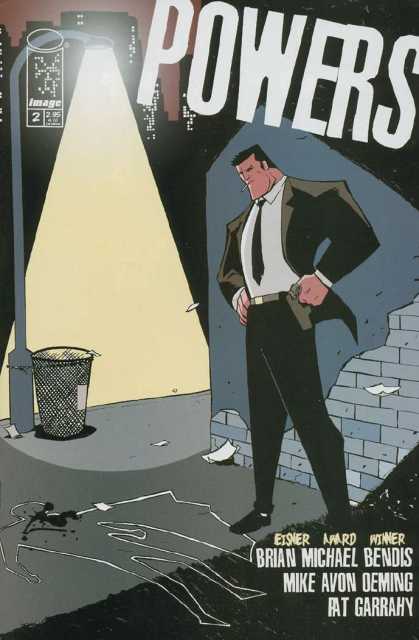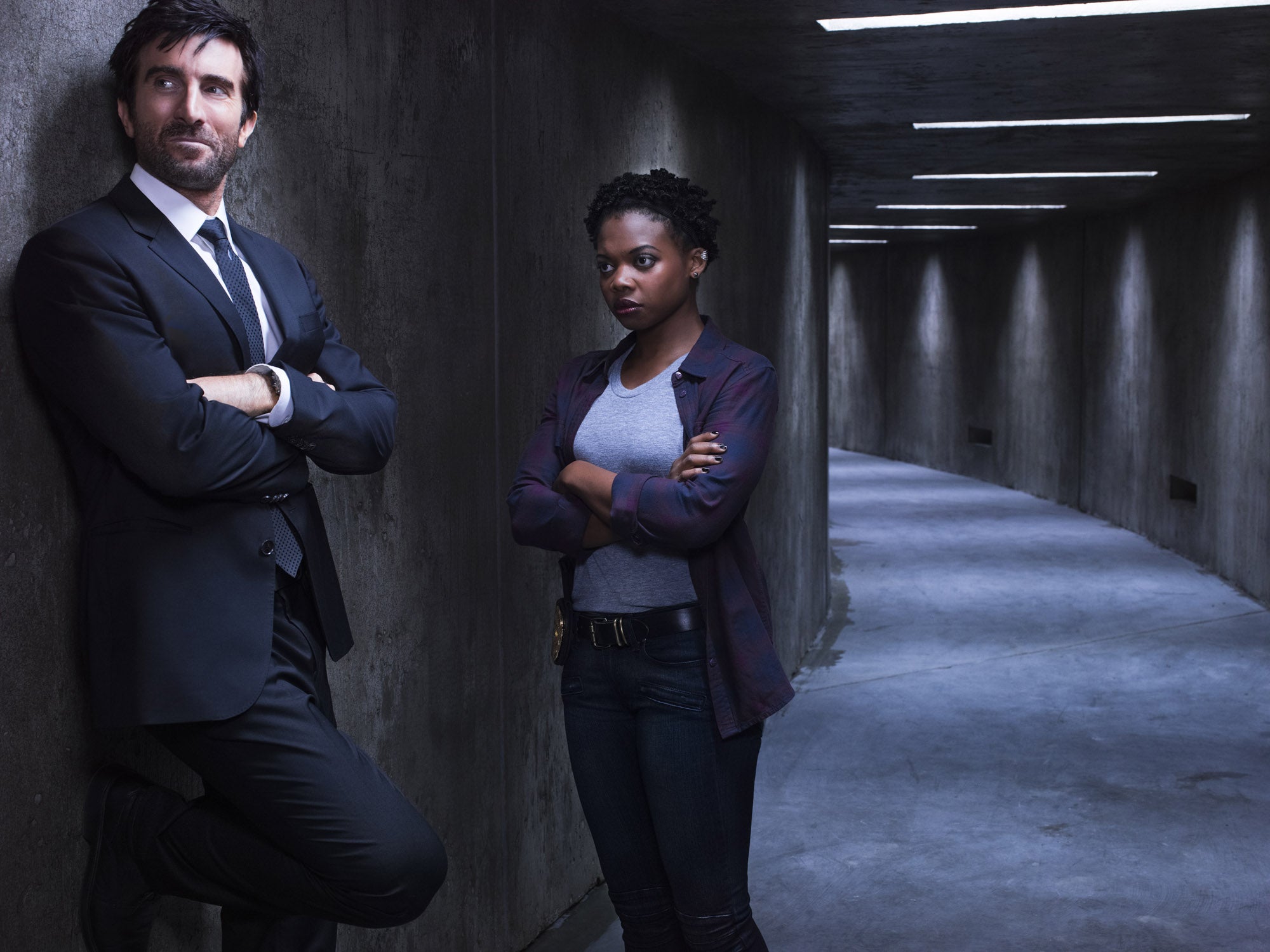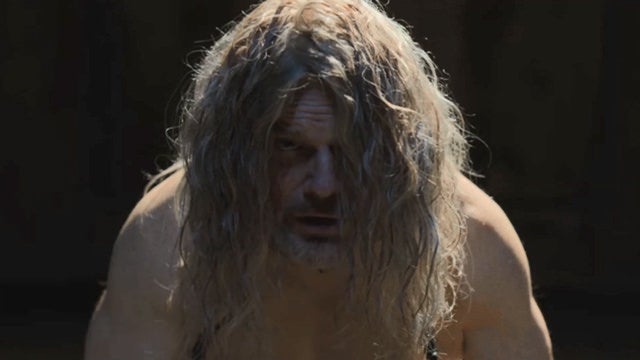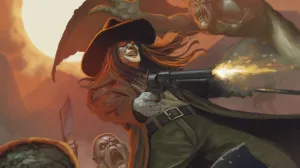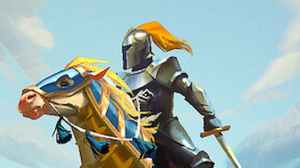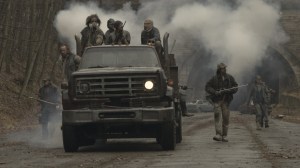Videos by ComicBook.com
The first episode is free on the Playstation store, with two other episodes available now and seven more coming to round out the first season weekly.
For those who haven’t read the long-running, acclaimed series that made Bendis and Oeming household names for comic fans, here’s the official writeup from Sony:
Powers, an edgy dramatic series, follows the lives of two homicide detectives, Christian Walker and Deena Pilgrim, who are assigned to investigate cases involving people with superhuman abilities, referred to as “Powers.” Set amidst today’s paparazzi culture, Powers asks the questions, what if the world was full of superheroes who aren’t actually heroic at all? What if all that power was just one more excuse for mischief, mayhem, murder, and endorsement deals? Enter the men and women of the Powers Division, the brave people in charge of protecting humans like us and keeping the peace over commercialized, god-like men and women who glide through the sky imposing their power over the mortals who both worship and fear them.
Bendis joined ComicBook.com for a chat about the series, his bar for success, and what roles The Walking Dead and the first FX pilot had to play in helping to shape the series’ future.
I actually have a different philosophy about this. I’m involved with many franchise things at Marvel and a lot of things that I own or co-own with people so I get different levels of responses from people about different things.
I actually think that about 90% of comics people are very into change and very progressive thinkers and literally reading comics because they want to be at the forefront of what’s really happening in the medium and the genres of superheroes and stuff like that.
The people who read Miles Morales, they’re there because they want to be first. They want to be there at it, and they like the change. And people who read independent comics — and Powers is very much an independent comic, still. Even though Marvel publishes it, we make it in our house — people who read those are reading them because they’re looking for something different, something that challenges them, something that shows them something they haven’t seen in other places. So Powers fans have always been very wide open to what this might be. I thought about that a lot during casting and during story choices that were being made by Charlie [Huston] and Remi [Aubuchon]. I would look at them and think about that and that made me happy.
I also think that people who have been reading the comic for a very long time are going to like that they don’t know what’s going to happen in the show. That’s very exciting. In the comic, you know Retro Girl dies at the end of the first issue. You’ve seen the pilot: that doesn’t happen. So that’s exciting. You don’t know what’s going to happen, but you get to compare and contrast which one did what better and it’s cool.
I’m not worried about it; I’m actually excited about the conversations as they go forward.
The Walking DeadAbsolutely. I look at The Walking Dead as the template for how to do a lot of things right. What you said is one of those things. From Robert’s level of involvement to…
The mediums of television in comics are sister mediums. There’s a lot of similarities, but there’s a lot of differences. There just is. And I wanted the show to make as much out of the television medium as on our best day the comic book does for comics. There’s going to be a lot of differences based on that. And that was something that Charlie and I bonded on very early in the development.
And what he picked for the pilot — all those elements are in the comic book in one place or another, but he cherry picked the stuff that would make the best version of a show, and that made me very happy. I think The Walking Dead does a similar thing.
Also, when we were first working on the comic, Mike and I had never done a book that had sold more than 2,000 copies. So the idea that we would do this full-color book and it would be successful was very slim, so we were writing it like we were being chased. We were writing it like “Here’s the case, solve the case, here’s the case, solve the case.” I would never redo anything and we’re very proud of that. It’s hard not to be proud of something that we won all the awards for and everything. But the show gets to do things that it would have been nice to do in the comic in that first year, as well.
I think by like year three on Powers in the comic book, we really found levels of language and story and that’s when the mythology kicked in. We were very excited about that. I think the show jumps in around there and that makes me very happy.
The show feels immersed in the world of Powers immediately in a way that I don’t remember as much from the comic. Was that a conscious choice?
So what our idea was, was to do that — drop you in. This is a world with superheroes, the end. You don’t have to explain too much. You’ve seen it, you know what it is. Part of the long struggle to get this show on the air was that Powers was speaking to an audience that understood the rules of superheroes. They’d been raised on them and they knew all of them. The TV and moviegoing world hadn’t gotten those rules yet. But now they have over the course of the past ten years. They’ve seen Batman and Superman and Fantastic Four and Spider-Man and the Guardians of the Galaxy. They’ve seen so many flavors, that whether they know it or not, they understand the rules of the genre.
And now here comes Powers and we’re going to flip them over. And now you really understand why we’re flipping them over. So I think we really needed this time to get the audience up to date to where we can drop you in a world with superheroes and people won’t be like, “Wait, what? There’s superheroes? Why are there superheroes?” No, there’s superheroes, you get it, the end.
How did Charlie come to be involved? He’s a great fit but not somebody I’d have thought of.
Yeah, it’s a very interesting story, actually. We did a pilot at FX. The pilot was very good; it had a lot of really good things in it. Now, it’s not a totally successful pilot, but it had enough good things in it that the network put together a writers’ room to work on the rest of the season.
So they hired some writers and one of those writers was Charlie Huston. Charlie wrote his episode and his episode was the best episode. It was funny and dark and sexy and interesting and the case was good.
And I had called the president of the network and anyone else who would listen and I said that as we’re finding what Powers is going to be on television, this is it. And everyone agreed, to the point where the president of the network actually fired everybody else and made Charlie in charge.
From there, we started working on Charlie’s version of the show, which is what you’re seeing now and everyone at Sony, who’s been just amazing and supportive the entire time, said “If for some reason it doesn’t happen at FX, we have a plan.” They told this to me and Charlie, and then their plan was [Playstation Network]. They completely came through, and promises kept, and we got to make the show.
And then Remi Aubuchon came on as co-showrunner and we’ve got all these great minds coming together who know genre and know how to write and know crime fiction and know superheroes, all coming together and stirring the pot. So it worked out. It’s a long, long story, which took fifteen years of my life, which is a good chunk of my adulthood, but we got a show at the end of it, so it’s pretty cool.
You know, you’ve heard other people talk about this, but I’ve actually had a lot of success in my life in terms of things selling well. I know from experience that real success is creative success. It’s not my job to worry about anything but that, so the simple act of making the show was success for me, but the bar keeps raising. Then success becomes, you get a second season. Then success is, you get to go as long as Gunsmoke. Then success is that you transcend media and become this other thing.
So, one step at a time, but so far, so good.
Also, success is honestly, and this is a very intimate thing…me and Mike Oeming invented this together alone in our rooms. Mike Oeming was drawing the first couple of issues in a security booth in New Jersey in the middle of the night when he was working. So success was when we got our first option and he could get out of the security booth. Success for us is standing together on the set of Powers and literally hugging and jumping up and down and sharing the experience of this journey together. My success is very personal and intimate, that one of my best friends and I did this together and are better friends now than when we started. So my success level on this is very intimate and very fulfilling.
The cast is really strong. Was there somebody who came in and you were surprised how well they worked because when you first saw them you didn’t immediately think “That’s the one?”
But with Deena, there were a couple of women who came in with very strong auditions who just looked like Deena. Then Susan walked in and you just spiritually felt Deena. Like, “Oh my God!” Then literally just got more and more and more into it as it went and I was thrilled that none of that normal race-changing backlash came at Susan about Deena. Again, talk about your first question. An audience like Powers is a very forward-thinking audience and they were like, “Okay, if you guys say she’s it, she’s it. Great. I would love to see that.” It wasn’t about the color of her skin; it was about where she is as a character.
There’s a couple like that, and Logan, who plays Zora, does not look like what Zora looks like, but she feels like it. When you see her midway through the season as a superhero, you’re going to go, “There’s Zora. There you go.”
And listen, two of my daughters are African-American and they were not part of my life when we invented Powers. I’m very happy that when they grow up I will have contributed to or helped contribute to strong women on television that they could relate to.
Oh, were you? [Laughs] Eddie was a fun one because somebody came in and said, “What about Eddie Izzard?” And I went, “Yeah, Eddie can play Deena for all I care. Just get Eddie in the room.”
We’re all big Eddie fans. You’ll see as the show goes on, Eddie brings it. Eddie goes dark. It’s great.
We all disagree on everything, but everybody loves Eddie Izzard. In New York, he was so cool to my friends that I’ll never forget how generous he was.

